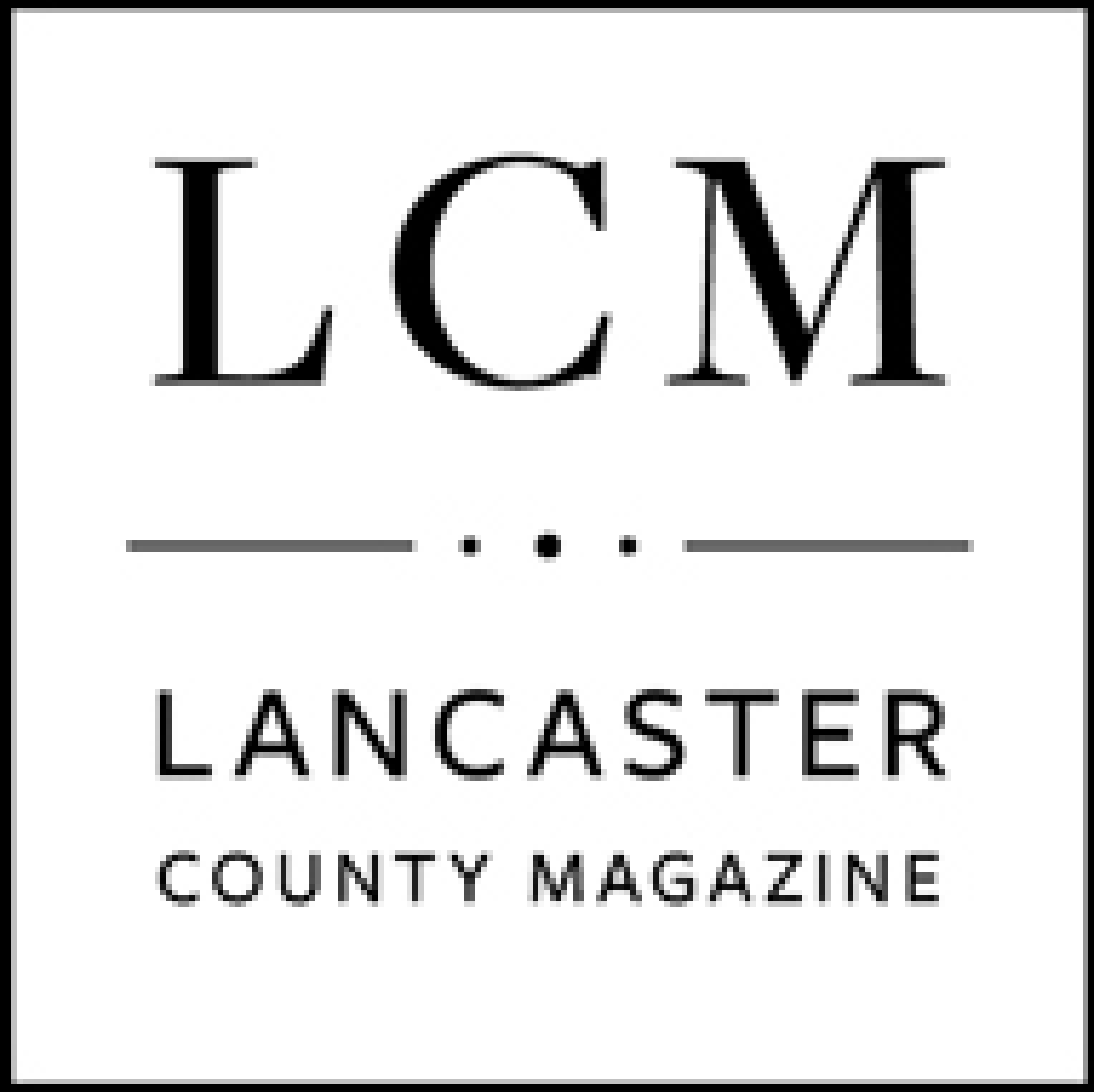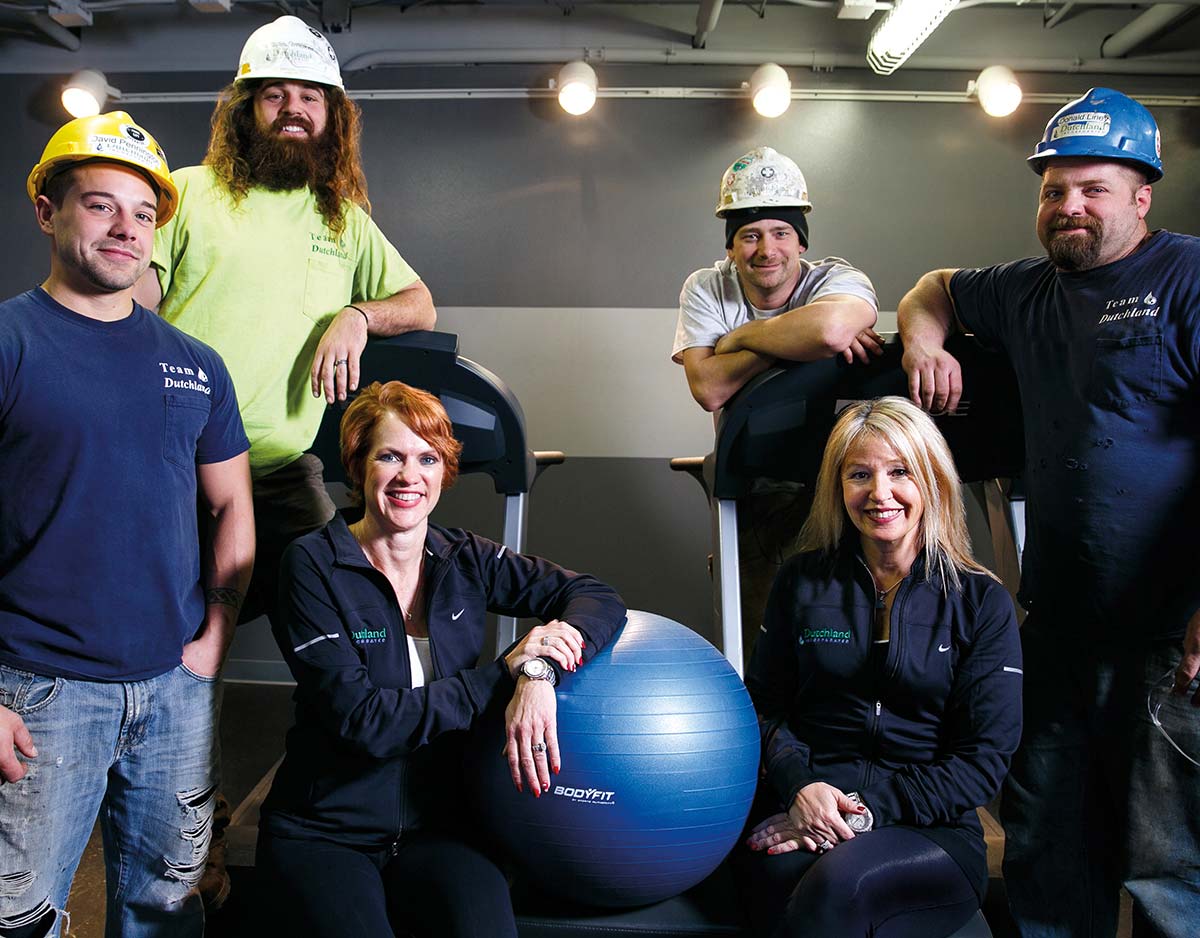Platinum Award/Small Business category
The Gap-based company, which was founded in 1985, designs, manufactures and constructs wastewater treatment plants. The precast concrete elements are manufactured in Gap and are then transported to the site, where they are installed by the company’s employees. While much of Dutchland’s work entails locations in Pennsylvania, clients are located throughout the Mid-Atlantic and beyond.
The Unique Factor: Dutchland employs 160, 13 of which are women.
According to Amy Jaros, who chairs Dutchland’s Well Workplace program, Concrete Strong, rising insurance costs prompted the company to explore its options in 2010. Murray Insurance offered the company the opportunity to become a member of a self-insured consortium. “Part of the program was forming a Wellness Committee,” she explains. The company recruited a representative from each of its departments to serve on the committee and set up a budget.
Sylvia Kauffman, who co-heads Concrete Strong, recalls the committee formulating a wealth of ideas, which became the basis for a survey. The results indicated that an on-site gym was tops on employees’ wish lists. So, the company took underused space and transformed it into a gym that is equipped with treadmills, weights, full-body workout machines and other items. Two shower rooms were also installed. “It’s open from 4 a.m. to 7 p.m. and gets a fair amount of use by both the office staff and the precast guys,” reports Amy. Employees can also take advantage of the mile-long walking path that meanders around the property.
Dietary issues were also addressed early on. Dutchland’s construction workers are on the road each week and depending upon their assignments, they may spend the work week at hotels (or rent apartments for long-term assignments) and head home for the weekend. Construction workers have notoriously bad eating habits, often relying on fast food for lunch and snacks. And, those habits are compounded if dinner must be eaten on the road, as well.
In an effort to remedy the situation, the Wellness Committee devised a program that educates such employees about healthy-eating options. The committee introduced them to dishes that could be prepared at home and packed in coolers, thus providing workers with nutritious food while they’re on the road. Those living in apartments have the luxury of being able to stock refrigerators and cook meals using healthy ingredients.
For those who prefer the fast-food route, the committee provided the Stop & Go directory that contains a listing of chain restaurants and their healthiness factor: green for go, yellow for maybe and red for pass on by.
Those same employees are on-site in Gap for full-day quarterly meetings. Amy notes that the lunch menu formerly consisted of pizza, chips, soda and cookies. That is no longer the case, and she reports that it came at the request of the employees. Subsequently, vending machines are offering more healthy options, salads and yogurts.
Kitchen areas have bulletin boards that are hung with Well Workplace information: incentive quotes, workout ideas, safety information and recipes. Employees also launched a gardening program. Raised-bed gardens yield items such as tomatoes, peppers and basil; employees are welcome to help themselves to the bounty. The ingredients are also used to prepare company-provided snacks.
Contests are also popular with Dutchland employees. One invited employees to prepare and bring in healthy snacks, the winner of which would receive a subscription to Clean Eating magazine. “That was really fun,” Amy says, adding that the winning Texas Caviar was exclusively served on the next Snack Day. Another contest challenged employees to walk 10,000 steps in a day’s time. Maintain Don’t Gain was geared to the holidays. The Biggest Winner saw departments compete against each other to collectively lose the most amount of weight. “This spring, a company-designed ‘Tough Mudder’ is our goal,” Amy says.
Dutchland employees also band together to participate in 5Ks and benefit walks. They’ve also bonded during rock-climbing adventures and through paintball outings.
Monetary incentives are also offered. Employees who are non-smokers, undergo yearly physicals and complete online health assessments can claim $50 rewards.
Dutchland has also extended its wellness services beyond the obvious. An on-site Health Fair has grown to include 14 vendors. Seminars provide coaching on such topics as stress management, fiscal responsibility, family matters, etc. “What’s going on at home affects job performance,” Amy points out. “If we see a need, we try to meet it. Integrating the whole well-being is important. Mental health is a hot topic right now, and we plan to address that, too.”
Dutchland is proud of the progress it’s made over the course of four years. “We did a lot in a short amount of time,” says Amy. She remembers the first time LGH arrived to conduct biometric testing. One employee emerged and was obviously upset. “His numbers were not good,” says Amy. “It was his wake-up call.” Another employee made lifestyle changes, which resulted in a 60-pound weight loss. “A lot of men and women have lost substantial amounts of weight,” she adds.
As for Dutchland, it has gained some hardware. In addition to Well Workplace awards (silver in 2013, platinum in 2014), the company was the winner of the American Heart Association’s Fitness Award. Their goal for 2015 is the nationally recognized Welcoa Award.


Leave a Reply